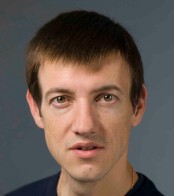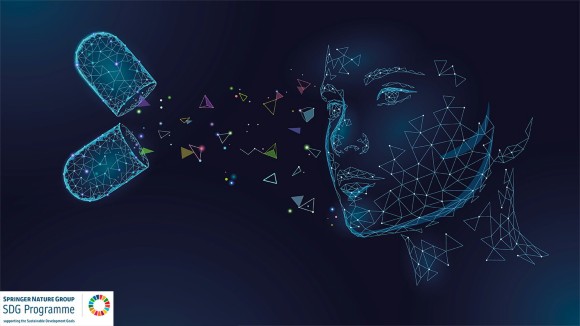 Alex Zhavoronkov, PhD
Alex Zhavoronkov, PhD
Insilico Medicine, Hong Kong, China & The Buck Institute for Research on Aging, Novato, California, USA.
Dr. Alex Zhavoronkov, PhD, is the founder and CEO of Insilico Medicine. Under his leadership, Insilico raised over $400 million in multiple rounds, opened R&D centers in six countries or regions, and partnered with multiple pharmaceutical, biotechnology, and academic institutions, nominated 15 preclinical candidates, initiated 4 clinical trials, and entered Phase II human clinical trials with AI-discovered novel target and AI-designed novel molecule. Since 2015 he has invented critical technologies in the field of generative artificial intelligence and reinforcement learning (RL) for generation of novel molecular structures with the desired properties and generation of synthetic biological and patient data with age as a generation condition. Since 2012 he published over 180 peer-reviewed research papers and 2 books. He founded and co-chairs the Annual Aging Research and Drug Discovery (ARDD), the world's largest event on aging in the pharmaceutical industry. He is the adjunct professor of artificial intelligence at the Buck Institute for Research on Aging.

Collin Ewald, PhD
ETH Zurich, Switzerland.
Prof. Dr. Collin Y. Ewald has a longstanding interest in the molecular biology of healthy aging and age-related pathologies1 . He has over 20 years of experience in gaining mechanistic insights, drug discovery, and strategies for promoting healthy longevity (see the Ewaldlab). He is the founder and president of the Swiss Society for Aging Research and vice-president of the German Society for Aging Research.
Morten Scheibye-Knudsen, MD
Scheibye-Knudsen Group, Department of Cellular and Molecular Medicine, University of Copenhagen, Denmark.
 Dr. Morten Scheibye-Knudsen has always has an unwavering fascination with understanding the foundational mechanisms of aging. After receiving his MD degree, he started his research track as a post-doctoral fellow at the National Institute on Aging, NIH, in Baltimore. Here, he utilized computational approaches and wet lab science to investigate how DNA damage contributes to the complex phenotypes seen in premature and normal aging. Using these computational approaches he discovered mitochondrial changes in certain premature aging disorders intricately linked to the hyperactivation of a DNA damage response and loss of the central metabolite NAD+. In his own lab he applies machine learning algorithms to define the aging phenotypes allowing him to link specific phenotypes with specific hallmarks. In a recent development, he pioneered deep learning-based algorithms to predict various forms of cellular senescence. A technique that he has used in a clinical trial for patients with COPD to show reduced senescence in the lung after treatment with the NAD precursor NR and on breast biopsies from more than 4000 healthy women allowing him to predict future cancer development from histologically normal tissues. He also implemented natural language-based analyses of 33 million pathology texts to unveil gender and tissue-specific patterns of aging in the Human Pathome. This research, which has been recognized globally by the media, has allowed him to identify Nintedanib as a potential aging attenuator and generate Cox hazard for every single term, effectively identifying thousands of aging biomarkers. Beyond these scientific contributions, he has since 2016 also organized the yearly Aging Research and Drug Discovery conference which has evolved to become one of the main events in the aging research space. Furthermore, he have been privileged to contribute as a returning lecturer at the Biology of Aging course at Johns Hopkins School of Public Health, serve as a chief editor at Frontiers in Aging, and act as the founder and president of the Nordic Aging Society. He also partake in the innovative sector as a founding member of VitaDAO, a blockchain collective focused on longevity research and biotechnology, and an advisor to the companies Deep Longevity and the Longevity Vision Fund.
Dr. Morten Scheibye-Knudsen has always has an unwavering fascination with understanding the foundational mechanisms of aging. After receiving his MD degree, he started his research track as a post-doctoral fellow at the National Institute on Aging, NIH, in Baltimore. Here, he utilized computational approaches and wet lab science to investigate how DNA damage contributes to the complex phenotypes seen in premature and normal aging. Using these computational approaches he discovered mitochondrial changes in certain premature aging disorders intricately linked to the hyperactivation of a DNA damage response and loss of the central metabolite NAD+. In his own lab he applies machine learning algorithms to define the aging phenotypes allowing him to link specific phenotypes with specific hallmarks. In a recent development, he pioneered deep learning-based algorithms to predict various forms of cellular senescence. A technique that he has used in a clinical trial for patients with COPD to show reduced senescence in the lung after treatment with the NAD precursor NR and on breast biopsies from more than 4000 healthy women allowing him to predict future cancer development from histologically normal tissues. He also implemented natural language-based analyses of 33 million pathology texts to unveil gender and tissue-specific patterns of aging in the Human Pathome. This research, which has been recognized globally by the media, has allowed him to identify Nintedanib as a potential aging attenuator and generate Cox hazard for every single term, effectively identifying thousands of aging biomarkers. Beyond these scientific contributions, he has since 2016 also organized the yearly Aging Research and Drug Discovery conference which has evolved to become one of the main events in the aging research space. Furthermore, he have been privileged to contribute as a returning lecturer at the Biology of Aging course at Johns Hopkins School of Public Health, serve as a chief editor at Frontiers in Aging, and act as the founder and president of the Nordic Aging Society. He also partake in the innovative sector as a founding member of VitaDAO, a blockchain collective focused on longevity research and biotechnology, and an advisor to the companies Deep Longevity and the Longevity Vision Fund.
Pavlo Mozharovskyi, PhD 
Information Processing and Communication Laboratory (LTCI), Télécom Paris, Institute Polytechnique de Paris, France.
Dr. Pavlo Mozharovskyi is an Associate Professor of Institut Polytechnique de Paris (Telecom Paris) in the domain of artificial intelligence. He is the author of major contributions on explainable neural networks, robust and computational statistics, and data depth, with code implementations. His works include numerous applications in biology and medicine, and his career record contains attraction of governmental and industrial funding, team supervision, substantial collaboration with the industry including strong expertise and delivery of AI-driven solutions over a range of fields.

